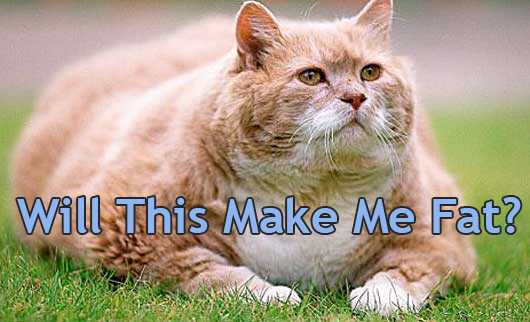
“Will this make me fat?” That seems to be the running question in our office these days.
Many are confused as to what foods may be contributing to their weight gain. Obesity is an epidemic that is running rampant in America, and yet no one seems to know what is causing it. Is it the soda? Is it the DIET soda? Is it the fatty pastry I had for breakfast this morning? What is it in our food that is making Americans so FAT! Yes, I said it, FAT!
The CDC says:
“The Trust for America’s Health projects that 44 percent of Americans will be obese by 2030, while the Centers for Disease Control and Prevention it projects 42 percent of adults will be. CDC also reported that 12 states have an adult obesity rate of over 30 percent.”
I don’t know about anyone else, but that is one scary number! 44 percent of adults will be obese? If that’s the case, what are those adults teaching their children? What will that number look like by 2060?
We all know that being obese, or overweight is not healthy. We also know that this contributes to other diseases such as heart disease, cancer, metabolic syndrome and many more.
The question I raise to ask is, is obesity a cause, or a symptom?
Many of the diseases becoming more prevalent are merely symptoms of one thing, BAD FOOD!
As a nutritionist, I can say the most common phrase I hear is, “I am concerned about my weight because it’s causing all my other issues!”
Let me just say, of course your weight is contributing to this, but your weight is not what is causing you to have high blood pressure. It is the food you are eating that is causing you to gain weight AND have high blood pressure. Obesity is not a disease, but is simply a symptom of BAD FOOD.
The first thing everyone must know about weight gain is that the culprit is not FAT. Fat does not make you fat.
Really?… No it doesn’t!
What is Fat made-up of?
- Fatty Acids 2. Glycerol
Fatty Acids are important because they help build cell walls, produce hormones and digest fat-soluble nutrients. Ever hear of fat soluble vitamins? Fat soluble means it can only be digested with fat. So we need fat to be nourished with vitamins that can only be used with FAT. (Hence why I am not a fan of the low fat diet) If the fat we eat is turned into fatty acids and glycerol, which is used for building cell walls, digesting vitamins, and making energy, how could it possibly bed bad for us? I don’t think building, producing and digesting are bad things for our bodies to be doing, do you?
Glycerol is where many get confused into thinking that it turns into fat. Glycerol is an alcohol that turns into a fancy word called dihydroxyacetone phosphate. Dihydroxyacetone phosphate is used in a cycle called glycolysis to make… Drum roll please? ENERGY!
Energy we use and need every day. “But we use carbohydrates to make energy?” Yes, this is true, we’ll get to that part soon.
If Fat isn’t causing obesity, what is?
CARBOHYDRATES & SUGAR!
Most patients I have spoken with about fat seem to have many misconceptions about how fat is produced by the body and what type of foods to eat if you are trying to lose some unwanted weight.
In the liver and muscles, most of the glucose (aka SUGAR!) is changed into glycogen by the process of glycogenesis (anabolism). Glycogen is stored in the liver and muscles until needed at some later time when glucose levels are low.
Our liver and body tissue is where our FAT is stored if our bodies are ever in need of energy reserves.
Without getting in too much detail about how our bodies digest fat, Carbs and sugars are what cause most of the issues in people trying to lose unwanted weight.
Go ahead, eat that fat! Here are some great sources of fat that will help build up those cell walls and help vitamin absorption:

Let me also make it clear that we do need to eat carbohydrates. Our bodies were designed to utilize all 3 nutrients – Fat, Carbohydrates and Protein. Our bodies do use carbohydrates in conjunction with FAT to produce ENERGY. So if you want some carbs (as we all do) go for some of these:
Good Sources of Carbohydrates
Fruits
Vegetables
Ezekial bread
*Gluten free foods (this will help keep your carb cravings down)
If your next question is about fat and how it can affect your cholesterol check out next week’s article, “Cholesterol Myth Busters”.
Alexandra Blydenburgh is a clinical nutritionist practicing out of her Rockville Centre practice Wellness Done Naturally. To find more of Alexandra’s posts visit her website at www.wellnessdonenaturally.com



